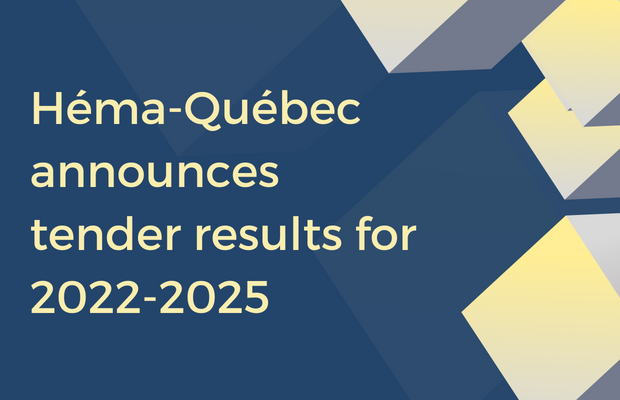No change to factor IX product mix in Quebec

Montreal, August 15, 2022 – On July 15, Héma-Québec announced the results of the recombinant factor IX tender for the period from October 1, 2022 to March 31, 2025. Rixubis, manufactured by Takeda Canada will remain the principal recombinant factor IX product to treat hemophilia B in Quebec.
Tenders, also called Requests for Proposals, are conducted by Héma-Québec every three to five years to select hemophilia treatment products based on a series of objective criteria including safety, efficacy, quality and cost.
This decision results in no change no change as Rixubis, a standard half-life factor IX, has been distributed in Quebec since 2017.
Extended half-life factor IX products – Alprolix (Sanofi), Idelvion (CSL Behring) and Rebinyn (Novo Nordisk) are approved for use by the Ministère de la Santé et des services sociaux for:
- those born on or after January 1, 2008
- those with exceptional conditions (short factor IX half-life, venous access difficulties or other medical reason).
“We recognize that Rixubis is a safe and effective product,” commented Mathieu Jackson, President of the Quebec Chapter of the Canadian Hemophilia Society, “and that Héma-Québec conducted the tender process in a fair and transparent manner. However, we regret that most Quebecers with hemophilia B, unlike residents of other Canadian provinces and territories, will still not have access to a product with an extended half-life that offers two key advantages: fewer infusions per week and higher trough levels of factor IX.” (A trough level is the lowest level of factor IX in the bloodstream reached between factor IX infusions.)
Extended half-life factor IX has been available to all those with hemophilia B in the rest of Canada since 2016. In 2021-22, 48% of the recombinant factor IX units distributed by Canadian Blood Services were extended half-life factor products. This compares to only 5% in Quebec.
Immunine, a human plasma-derived factor IX product also manufactured by Takeda Canada, remains available as well. Its use represents 10% of the factor IX market in Quebec and 5% in the rest of Canada.




